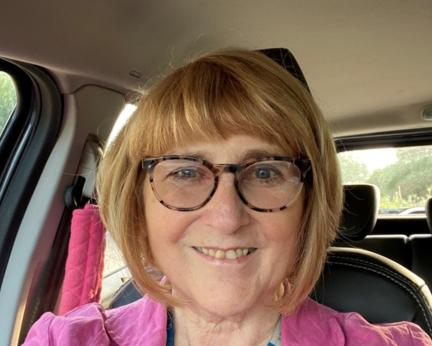People always think that forensic psychologists visit crime scenes or help the police to solve crimes, but very few do that. Most of our work would be in prisons, secure hospitals or in the community. We generally work with groups of people to help them learn more about themselves.
Every day is different, but I conduct risk assessments, undertake therapy, including using Eye Movement Desensitisation and Reprocessing (EDMR) and try to enable individuals to understand themselves so that they can make positive changes for the future.
EDMR really helps people who have experienced a traumatic event. Our brains can process and store memories incorrectly leading to memories being triggered by our senses. This can lead to people reacting as they did at the time of trauma. The brain feels as if the past disturbing event is happening now. EMDR therapy corrects this so that the painful memories associated with the trauma lose their emotional hold. The person can then remember the memory without feeling like they are reliving it.
I also take a compassion focussed and trauma-informed approach which are centred around a person’s individual needs. Compassion-focused therapy (CFT) is a type of psychotherapy that helps people suffering from high levels of self-criticism and shame. It uses cognitive behavioural therapy with concepts from evolutionary psychology, social psychology, developmental psychology, Buddhist psychology, and neuroscience. It can help people learn how to be kinder to themselves and others while feeling safe and capable in a world that can seem overwhelming. A trauma informed approach also looks at people’s past experiences might be impacting on them now.
I am also the current chair of the Division of Forensic Psychology (DFP) and have really enjoyed working with the British Psychological Society (BPS) and DFP. I also co-founded a YouTube channel ‘Let's Talk Forensic Psychology - YouTube’ on which we discuss all aspects of forensic psychology, which has been well received.





